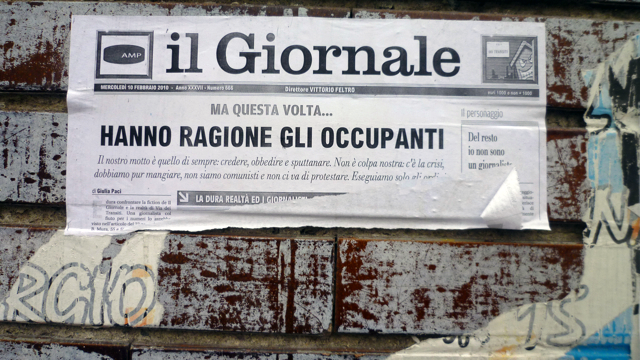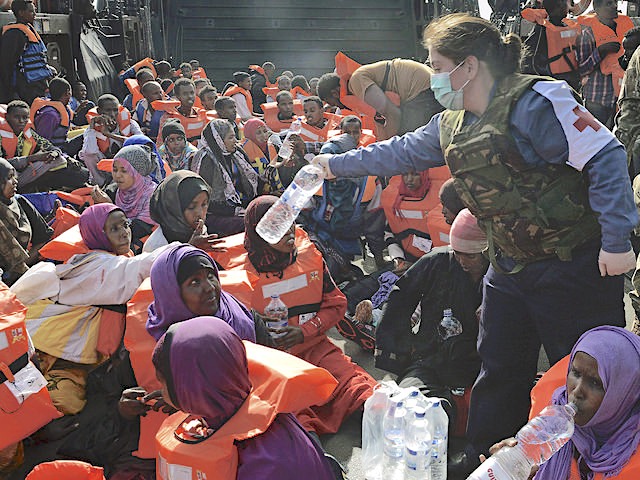The reaction was intense. Within an hour, a post I’d written, about Latinos in Italy, was being torn apart. Why was I interested in Peruvian restaurants? What was wrong with local Mexican cuisine? Why move from San Francisco, and think about anything other than Milan? And yet, the article was immensely popular. It went to number one on Reddit Italy, and generated thousands of readers. I even received some very nice private emails thanking me for raising the subject.
I’d published the piece as an experiment. Having worked in Italy for two years, I was quite familiar with the lack of English-language news media in the country. With limited time to learn Italian due to the nature of my work (my clients are abroad, and communicate in English) I’d sought it out. Though Milan’s Latino community is a subject of much discussion in Italian newspapers (especially Central American gangs) I hadn’t seen any discussion of the subject in foreign news media. Knowing Reddit’s cantankerous user community, I wasn’t surprised by the reaction. Just its depth. Clearly this is something that needed more talking about.
My reasons were also personal. My first year in Italy, my family and I lived near Via Padova, a then volatile part of Milan. Full of North African and Latino migrants, and Italian security personnel, tensions were so high, the place always felt like it was about to explode. I continually found myself searching out news about the neighborhood, but information was scant. That was, until riots broke out, a month before I moved to Berlin, and the area turned into a warzone. Some foreign newspapers covered it. Most didn’t. In Italy, most foreign media offices are in Rome, not Milan, despite it being the financial center of Italy.
I’ll be the first to confess that my perspective is privileged. As a German resident, getting settled in the country was made immensely easier by Germany’s large English-language publishing community. In between twenty-four seven news services such as Deutsche Welle, the English edition of Der Spiegel, and news blogs such as The Local, I’ve been able to get to know the country much faster than I would have otherwise. Though there are other news outlets I could cite, I can’t underestimate the value of a multilingual publishing culture like this. It’s not just good for business. It helps make being a foreigner easier.
One would think that with the enormous number of tourists that visit Italy each year, and its enormous immigrant community there would be more news media that catered to foreigners. The fact is that there is no parallel to that which exists in Germany. Instead, one is forced to cobble together their news from a variety of foreign and domestic sources. Though it is indeed possible to create an RSS reader full of English language coverage of the country, the implementation of RSS is often inconsistent. One has to jump from site to site, manually, to get the big picture.
Like many people my age, I was introduced to Italian news by Silvio Berlusconi. Not through perusing his own publications (let’s not forget Mediaset) but by reading the British news periodicals frequented by Americans: The Guardian, and The Economist. Well-known for their dislike of the ex-President, for as long as I can remember, both periodicals have offered the most consistent and in depth coverage of Italian politics in English. Whether it’s through articles on the sexual escapades of Il Cavaliere, the Amanda Knox trial, or op-eds by Italian newspaper editors, the coverage has been there.
Less consistent has been English translations of Italian news published in Italy. Not in terms of quality, as much as availability. Spread between a number of Italian media – La Stampa, ADN Kronos, Ansa, and a condensed, English-language online version of Milan’s Corriere della Sera, the reading experience tends to be a bit fractured. There are no Italian aggregators of translated news. Worldcrunch, a global news translation service in Paris, offers select La Stampa translations. The English edition of Presseurop covers the occasional piece from La Repubblica, Italy’s biggest circulation liberal newspaper. However, that’s pretty much it.
I’ll be the first to admit that I’m a junkie. I consume news media all the time, not only out of interest, but also because of my work. Italy is in as difficult a set of economic circumstances as the rest of southern Europe. It not only deserves to be reported on abroad, as its economic health has implications for the rest of the global economy, but also, in other languages, at home. Internally, Italy is simply too international a space not to be as easily accessible, in terms of daily news information, to its own increasingly diverse citizenry. This is one instance, I think, where the vaunted ‘German example’ is especially helpful.
As a designer working in technology, I understand that part of this, at least today, is attributable to the fact that internet use is lower in Italy than in the rest of Europe. Rationalizing online resources creatively, and in depth, is something that comes with time. Nevertheless, I can’t think of a country better poised to do this, especially considering of how desirous Italians are to stabilize their economic and political situation, and remain an integral member of the European Union. Recent English-language Italian blog discoveries, such as the excellent Struggles in Italy, give me a lot of hope. Here’s to many more independent online initiatives like it.
Photograph courtesy of Joel Schalit






This is very interesting. But I’m quite disturbed how you use ‘multilingual’ as almost synonymous with ‘English.’ Italian relationship to English is an interesting one, but given your topic, what about Spanish language publications? or others? Why not broach the historical reasons for this situation? Its not the whole story, but when I was Italy learning Italian and asked the Germans there why there were almost no French students learning Italian, the common answer was ‘they aren’t ashamed of their language…. Your myopic focus on English as if it is a ‘neutral’ or ‘global’ language is grist for the English imperialism side of the debate (one which I do not hold, by the way).
Thanks for your comment, Peter. I appreciate your point of view. It’d be one thing if I was arguing Italians had to learn English. I’m not. That would lean more towards the cultural imperialism side of things.
What I argue on behalf of is the idea that Italy could communicate itself better to outsiders, both internally and externally, for many reasons. Since English is the lingua franca of business, and news broadcasting (DW, France24, for example) I don’t necessarily think that’s a bad thing either.
In Turin, for example, pro-migrant activists leaflet in French and English, as well as Arabic, when they can find a translator. Having more news resources available, in English, among other languages, would perform a parallel function.
“such as the excellent Struggles in Italy” 🙂
Happy about it. Our project is very young, but we’re working well together. Unfortunately our point of view focuses only on one topic (struggles), but we often broach other subjects.
I always wonder how the english versions of La Stampa and CorSera can be so terrible. Only Ansa is worth reading, but is often biased by pro-government view.
Anyway, you are right, Italy is cutting itself off Europe. Mostly because school fails in teaching English and because we live in a “purified environment” where everything is translated and other languages barely appear.
I totally agree with peter, we’re culturally colonized by English-speaking culture and we have to resist this colonization, but resistance needs both agreement and disagreement, that means understanding. Otherwise we just stand alone in our corner.
Giorgio